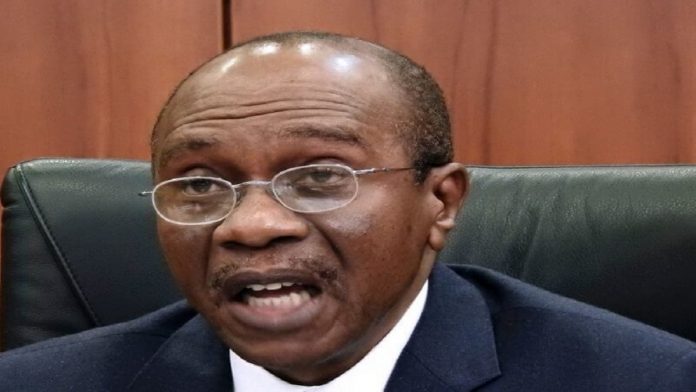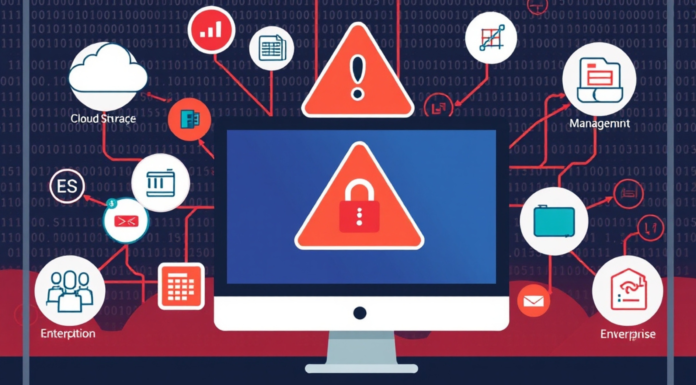Nigeria’s central bank retained its benchmark interest rate at 11.5 percent for the seventh consecutive week last week, a measure that financial analysts said will solidify the country’s modest gains in economic stability as the new year approaches, says Festus Akanbi.
Some bookies in the Nigerian financial market have placed bets before the Central Bank of Nigeria’s Monetary Policy Committee met last week, claiming that the committee was very unlikely to adjust any of its rates.
The common phrase that no one changes a winning team/formula echoed the sentiments of those who monitor the economy. By the time the CBN Governor, Godwin Emefiele, addressed the press after the two-day meeting in Abuja, the committee had retained all of the rates.
The committee decided at the end of the meeting to keep the monetary policy rate and all other policy settings unchanged.
Preserving the status quo
Governor Godwin Emefiele said the Monetary Policy Committee unanimously supported the decision to maintain rates unchanged (MPC). “The incumbent policy stance has aided growth recovery,” Emefiele added, “and should be allowed to continue for a little longer.” He said that fiscal and monetary initiatives were driving Nigeria’s economic recovery following a COVID-19-induced recession in 2020. The security situation in Nigeria, on the other hand, had hampered business confidence and foreign investor attitude, according to Emefiele.
The following are the decisions reached: The benchmark interest rate (MPR) was kept at 11.50 percent, with an asymmetric corridor of +100/-700 basis points around it, a cash reserve ratio of 27.50 percent, and a liquidity ratio of 30.00 percent.
The Committee noted that inflation has continued to fall, and the economic recovery has appeared to gain speed in the second and third quarters as it deliberated its decision. A rate hike, it said, would stifle private-sector credit growth and hence stymie the recovery. On the other hand, loosening banking conditions might derail inflation’s downward trend and increase capital outflows in the face of higher negative real interest rates. Overall, the Committee came to the conclusion that there was no room to tighten or loosen the Bank’s stance.
Recovering Period
The Committee emphasized that headline inflation has remained stable, owing to slower growth in food prices and the non-food basket. The Committee did recognise, however, that inflation remains over the CBN’s goal range of 6.0 percent to 9.0 percent, as well as the MPR of 11.5 percent.
The CBN Governor stated that the committee was debating whether to remain accommodative, maintain the status quo, or tighten to bring inflation closer to the bank’s medium-term target of 6.0 percent to 9.0 percent.
The committee also believed that relaxing would result in a wider spread of negative real returns and exacerbate pricing distortions in the financial system. As a result, the committee concluded that keeping things as they were would allow the benefits of its accommodating monetary policy to spread throughout the economy.
Market Expectation
Analysts from Cordros Research explained that the committee’s decision to maintain the status quo on monetary policy parameters is in line with market expectations, adding that the committee’s underlying tone suggests the apex bank is preparing for a shift to a hawkish policy starting in Q2-22, a period during which we believe the committee will judge substantial progress in supporting economic recovery.
“We do not expect major departures from the existing dynamics of the FI market, noting that the MPR is increasingly becoming a signalling instrument for market rates,” analysts from Cordros Research wrote in their response to the MPC meeting, justifying the vote to retain the status quo. We predict that aversion to long-dated securities will continue to be driven by medium-term expectations of interest rate hikes. As a result, we expect bond investors will stick to their strategy of betting on the short end of the yield curve.
“With strong fixed-income returns and inflation worries on the horizon, we expect investors to reject the DMO’s attempts to lower rates at bond auctions in order to increase inflation-adjusted returns.” Despite this, we expect the DMO’s concerted attempts to lower government borrowing costs will keep the yield curve around 14.0 percent.”
Mr. Olufemi Ademola, Executive Director of Cordros Capital Limited, listed the global economy, oil price dynamics, foreign exchange market, equities market, and fiscal sustainability as other considerations for the MPC’s decisions in response to THISDAY’s questions about the outcome of this month’s MPC meeting.
“At the end of the Central Bank of Nigeria’s (CBN) Monetary Policy Committee meeting on November 23rd, 2021, the committee unanimously voted to keep the benchmark interest rate (MPR) at 11.5 percent, while leaving all other monetary parameters steady,” he stated. The MPC cited a 4.03 percent increase in real GDP and a steady reduction in headline inflation as the main reasons for keeping the monetary parameters in place.
“The MPC took into account a number of other factors in formulating their decision, including the global economy, oil price dynamics, the foreign exchange market, the stock market, and fiscal sustainability, among others.”
Expansion of the Monetary System
Ademola argues that monetary expansion via decreasing the monetary policy rate is necessary to stimulate the domestic economy in the face of falling inflation. “However, given the volatility in the foreign exchange market and the uncertainty surrounding budgetary sustainability, monetary tightening would be required.” “Because the global economy is also undergoing tremendous uncertainty, a wait-and-see strategy looks to be the most convenient option,” Ademola remarked.
“It should be highlighted that the HOLD stance is not an indication that all is good with the Nigerian economy,” the Cordros Capital Director continued. Rather, it is an attempt to take a wait-and-see approach to assess the implications of the unfolding global development around policy tapering and normalisation by advanced economies on the one hand, and distilling the various contributions of the current monetary policy stance for a little longer to assess its effects on price stability and, eventually, on economic growth on the other.
“This is the MPC’s final meeting of the year; hence, except for any emergency intervention required, no major changes in the economy’s trajectory are expected until the end of 2021.” While the monetary authority is unlikely to face any exigencies that would necessitate drastic action, an unanticipated drop in oil prices or a foreign exchange crisis would necessitate emergency action by the Committee and the Central Bank.”
Foreign Exchange Policy
Some analysts, however, criticized the MPC’s decisions for failing to provide a clear message about the direction of Nigeria’s foreign exchange market.
In an interview with THISDAY, Razia Khan described her role as Chief Economist and Head of Research, Middle East & Africa, at Standard Chartered Bank.
“Markets are likely to have been frustrated by the lack of discussion of FX policy,” says the London-based international economist.
“Ahead of 2022, delivering a better functioning FX market will remain a key reform, on which the rest of Nigeria’s reform effort – accelerating growth, safeguarding fiscal space, addressing fuel subsidies, and moving to cost-reflective power tariffs – are likely to rest,” she believes.
In its accompanying statement, the CBN gave no express forward rate guidance, but did say that “a hold posture will enable the sustained penetration of present policy measures in supporting the observed growth rebound and macroeconomic stability.” As a result, most panelists expect the Bank to keep the rate at 11.50 percent until the end of the year, though some predict a raise before the start of a tightening path next year.
The current trend is expected to improve in the first quarter of 2022, when the focus shifts to political campaigns ahead of the 2023 elections.















